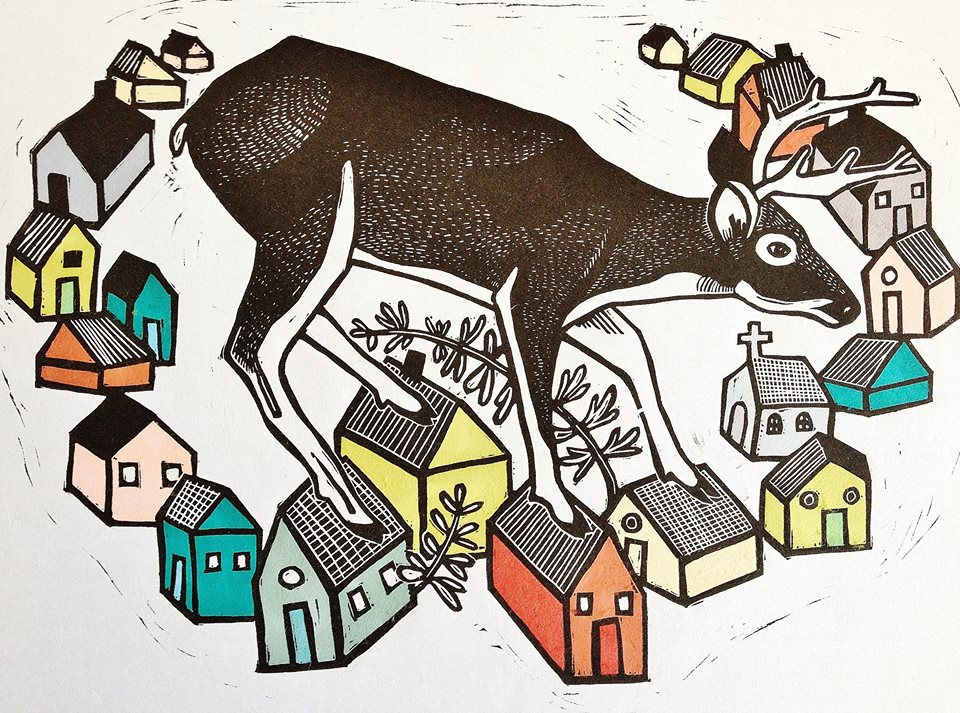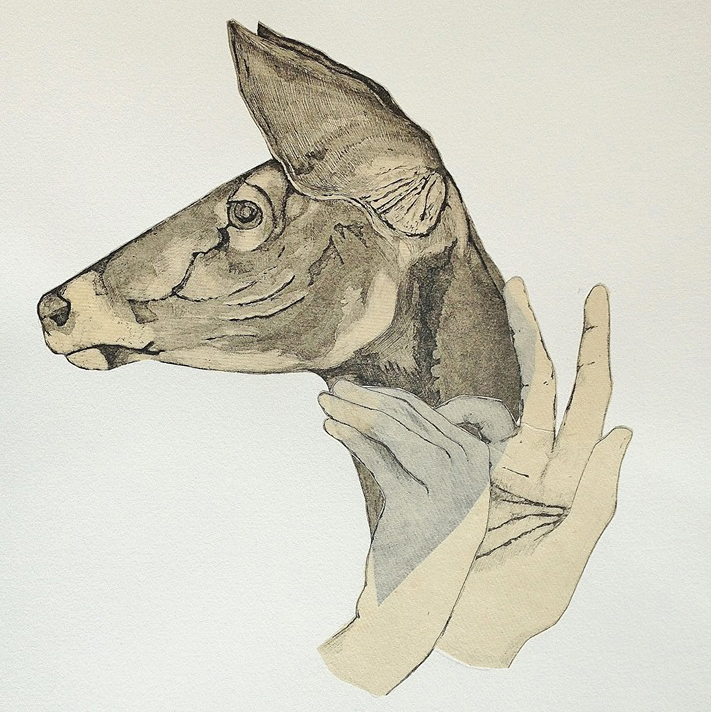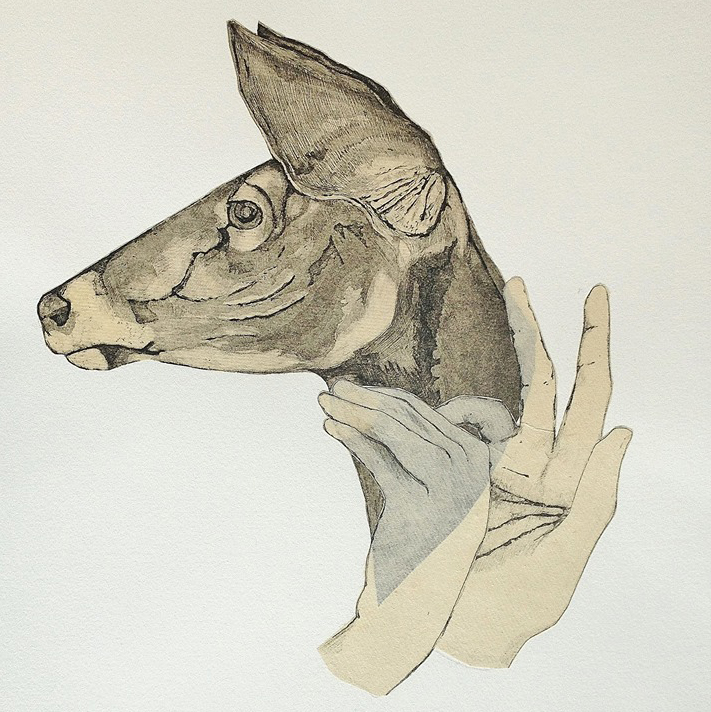By MARTHA PARK
 Deer Neighbor, hand-pulled linocut
Deer Neighbor, hand-pulled linocut
When the radiators overheat we try to turn the knobs wearing oven mitts. At night it’s too hot to sleep, and we open the windows to the cold December air. My nose bleeds intermittently, suddenly, all winter long. I wake in the night to the hot rushing smell of iron, or, elbow-deep in dishwater suds, feel the blood coming too quick to stop.
It’s hunting season in Roanoke, Virginia, and he is butchering a deer in the kitchen, a 150-pound buck—would have been an eight-pointer, he tells me, but for one tine, broken and grown back crooked, reaching downward. The head is in the fridge, wrapped in a black garbage bag, one antler-tip poking out from a punctured hole. Though I can’t see it, I know the tongue is in there, sprawling dry from the mouth. Though I can’t see it, I know there is a tick roaming fruitless and cold through the brittle fur, searching for a hot vein.
As he prepared to go hunting, I watched him open the box full of gear—camo coveralls and gloves, bright orange beanie, deer call. To me these were relics of an alien world. I asked not to see the rifle, but as I neared sleep each night I knew it was there in the dark closet, gleaming and cold. Now he pulls one heavy, skinned leg at a time from a cooler and cuts the meat away. The dog works at a bone, pulling the marrow from it in quick, focused bites. I sit across the room, reading and listening to the constant cutting of the knife, the snapping tendons, the dog’s teeth grinding against bone.

Shadow Puppet, etching with chine collé
He cuts the meat into tenderloins, ham roasts, and chunks for stew. He tells me he took the deer’s stripped ribcage and threw it over the fence, into the pasture, for the sheepdogs to gnaw. I picture an autopsy, sterile, the ribs cranked wide and gaping under fluorescent lights, and three sheepdogs drooling over the table, waiting for their turn.
Outside, the wind beats at the house. Inside, we speak of rationing. I feel suddenly citified when I tell him I have never eaten meat not bought at a supermarket. I wager that the meat from this single deer will last us a year. He tells me I am wrong. “Not two people,” he says, “maybe one.” He wraps the meat in freezer paper and plastic bags, stacks the meat in the freezer.
I feel moisture drain from my body, like I’m evaporating into the dry air. I place pots of water on the radiators, and think of this time last year, when we were walking along the pasture and the cattle—gangly, teenaged—came up to the fence. I ran my hands through their thick winter fur, traced the chipped layers of their horns. One of the cows licked my arm with a dry, rough tongue. When I pulled back from her, my arm was streaked in blood. I looked to see if I’d been cut and I glimpsed the glint of red nosebleed in the cow’s wet muzzle.
Our breathing fogs the windows of the car as we drive down the highway. The broken bodies of deer sprawl flat across the median, legs still reaching. Some look caught in a dreamless sleep, their spines bending at unnatural angles. He’s driving and though the headlights illuminate the deer’s brown, rounded bodies, neither of us mention them. We’ve been eating venison stews and soups, marinated tenderloins served with rice. We are full, satisfied. The moon is still out, but light rays are creeping over the edge of the horizon. We pass a cop car parked behind a deer’s supine body, still dying or just dead. The car’s lights are on, whirring, illuminating the steam rising in wispy clouds from the deer’s body. I wonder whether the steam comes from blood, pooling somewhere unseen, or if it is the last escape of the body’s living heat.
Martha Park’s work has been published in Image, Terrain.org, Gravy, Paper Darts, The Hollins Critic, The Memphis Flyer, and elsewhere.
Illustrations by author.




